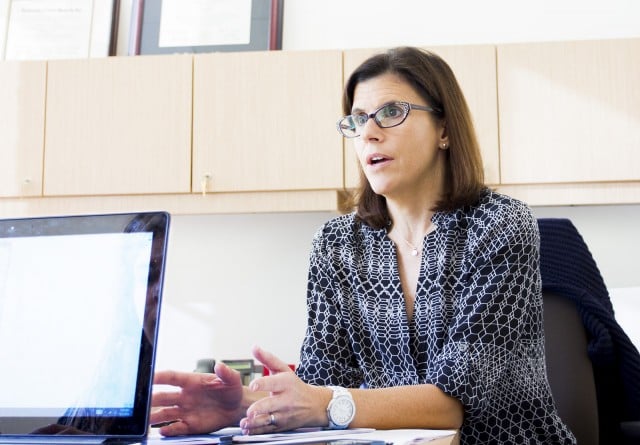On January 12, 2017, former UCLA Title IX coordinator Kathleen Salvaty was named as the UC’s first system-wide Title IX coordinator. The creation of her new position follows an overhaul of the current UC system’s policies regarding sexual assault, as well as a plethora of sexual harassment scandals at UC Berkeley. Reporting directly to President Janet Napolitano, Salvaty will oversee the Offices for the Prevention of Harassment and Discrimination from each of the ten campuses, working to ensure that the recommendations for improving sexual violence and harassment prevention and response efforts are implemented for students, faculty and staff. The position holds apparent promise, but Salvaty’s position alone cannot be seen as a strong step forward for advancing the protection of those who work and study at the University of California when this new administrative position is being funded money more urgently needed for individual campus resources — and certainly when the UC Board of Regents itself can’t adequately handle sexual harassment at the administrative level.
Students, faculty and staff have argued that Napolitano’s efforts to provide resources and support to prevent sexual violence fall short. In addition to the appointment of a system-wide Title IX coordinator, student groups are calling for a universal procedure in reporting sexual harassment/violence cases with a uniform method of investigation and action. Others who work closely with Campus Advocacy, Resources and Education at the Sexual Assault Resource Center would like to see more done on an individual campus level. There are only two lawyers staffed at UCSD’s Student Legal Services Office, leaving a gap in the amount of legal representation for cases involving more than two victims and accusers. Investigative services are minimal, which can lead to cases being dragged on for upwards of a year and a half. This puts additional pain and anguish on the survivor, who must relive their ordeal for various investigators and trials, and also affects the validity of the case, whether it be through a loss of evidence or changing recounts of the assault. While there are students and staff to volunteer their time to work at the SARC offices, there are simply not enough resources available on a campus level to provide the adequate support, investigative and legal services these complex and emotional cases deserve; the reason is that they don’t get the level of funding allocated toward the newest administrative position.
Further, it can be argued that Salvaty’s appointment, alongside the recent overhaul of UC sexaul assault and harassment policy, is overdue, coming a full year after the release of records showing that over a hundred UC employees were disciplined for sexual misconduct between April of 2013 and 2016. Astronomer and UC Berkeley Professor Geoff Marcy, for one, resigned after a plethora of reports against unwanted sexual advances, though he was never fired explicitly for sexual harassment. Instead, he received only verbal reprimanding from the university. Many other instances occurred at UC Berkeley under its former Chancellor Nicholas Dirks, who failed to censure faculty accused of sexually harassing their subordinates. One of them is the Sujit Choudhry, the former dean of Berkeley’s law school who was accused of “near daily” harassment by his assistant, Tyann Sorrell. These cases are not only troubling but expensive; last week, the UC Regents settled with Sorrell for $1.7 million in their mishandling of her case.
Creating and appointing Salvaty as the UC’s first system-wide Title IX coordinator could be seen as an appropriate response by the Office of the President to a concerning wave of sexual harassment and sexual violence cases. After all, providing a sense of accountability establishes that student, staff and faculty safety and concerns are of the utmost importance to the UC system and regents. However, Napolitano, Salvaty and the UC Regents need to understand that the appointment of a system-wide Title IX coordinator isn’t the final solution in dealing with sexual harassment and violence cases on UC campuses. UC executives, alongside victim advocates on each campus, must work together to distribute resources, time and education that can make a real difference in providing justice and support for survivors. Only time will tell if Salvaty is able to make and implement policies that will effectively change how sexual harassment and assault cases are handled on UC campuses.
Correction: This article has been updated to accurately reflect that UC Berkeley Law School Dean Sujit Choudhry was accused of sexually harassing his assistant, ceasing to be censured by former Chancellor Nicholas Dirks.









Grandma Peggy • Apr 25, 2017 at 4:33 pm
Good reporting Megan I am proud of you.